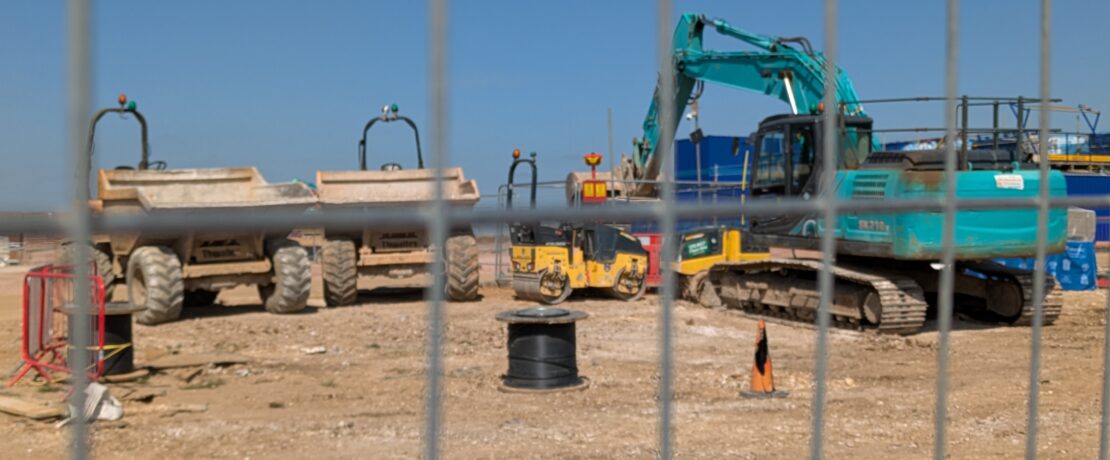Planning and Infrastructure Bill 2025
As currently proposed, the Government’s Planning and Infrastructure Bill will create significant problems and impacts on nature conservation and the countryside.
In this overview, we outline this important piece of pending legislation and summarise our response.
Introduction
The newly released Planning and Infrastructure Bill is a major piece of legislation hot on the heels of the revised National Planning Policy Framework (NPPF) published in December 2024. It forms a key part of the Government’s planning reforms which it says are necessary to promote economic growth. Not surprisingly its focus is on infrastructure, but we are alarmed by the hugely significant and damaging implications the Bill could make to Hertfordshire’s countryside and these have raised serious concerns from many environmental organisations.
There are many commentaries on the Bill from various view-points, both pro and anti, and most identify five main topic areas, most of which will affect how the countryside is used and considered within the planning system:
- Reduction of opportunities for legal challenge to infrastructure and other projects
- Changes to how local planning authorities finance the planning process and make decisions
- Promotion of strategic planning
- Promotion of development corporations
- Reduction in environmental red tape and compliance costs.
Each of these topics is considered briefly below together with an indication of their implications for CPRE Hertfordshire campaigning activities.
Reduction in legal challenges
The Bill reduces the number of legal challenges that opponents to major infrastructure projects can raise through judicial review from three to two in most cases. It is proposed that High Court judges can decide at the first challenge whether or not it is “totally without merit”.
Changes in local planning authorities operations and finance
The Bill allows councils to increase planning application fees to cover the costs of their planning services. The Bill prepares the way for more decisions to be made by planning officers rather than elected members.
Promotion of strategic planning
The Bill places a duty on newly reorganised combined local authorities to prepare a Spatial Development Strategy for their area. These Strategies will only require majority and not unanimous support from their constituent local authorities.
Promotion of development corporations
The Bill extends the potential role of development corporations for a wide range of development promotion, including new towns, and on greenfield land. It increases the power of mayoral development corporations to promote development.
Reduction of environmental red tape and compliance
The Bill proposes the production of Environmental Delivery Plans for specific areas where standardised levels of environmental mitigation would be required to be implemented by a delivery body. Developers will have the option to pay into a Nature Restoration Fund for environmental projects in each area but details are lacking.
Institutional responses
The Bill has inevitably been welcomed by development interests and professional bodies such as the Local Government Association, the Institute of Government and Royal Town Planning Institute. This is largely due to the perceived reduction in the potential for legal delays to projects in the existing planning system, and the modest increases in resources and streamlining of processes for decision-making.
On the other hand, over 30 environmental organisations have raised very significant problems in a widely publicised letter to the Planning Minister Matthew Pennycook, particularly with the potential impacts on nature conservation and the countryside. The signatories included all the major national environmental organisations, and the Better Planning Coalition which national CPRE convenes.
CPRE Hertfordshire response
The concerns expressed by the environmental groups are serious and require the Government to reconsider the legislation. The potential reductions in environmental compliance and community involvement in decisions on development of all types runs directly against increasing awareness of environmental issues at all levels.
The proposed legislation suggests that strategic planning and institutions will ensure the appropriate consideration of environmental issues but is wholly inadequate in its treatment of how this will occur. The balance of the Bill is skewed in favour of development without maintaining the balance of economic, social and environmental interests which is required by the Government’s National Planning Policy Framework.
CPRE Hertfordshire will continue to support combined efforts both locally and nationally to increase awareness of the inadequacy of the proposed legislation. We will inform County MPs and Council Leaders of the dangers to the countryside of the reduction in democratic control of development decisions which impact local communities, and the complete inadequacy of the measures to ensure environmental compliance for development projects of all kinds.
What next?
We believe the countryside is worth fighting for. CPRE Hertfordshire will continue to work within the planning system to promote and protect the countryside from inappropriate development. Once it’s built on, it’s gone forever.
Please support our countryside mission
If you are concerned about the impact on the countryside of the Planning and Infrastructure Bill, please join or donate. We are a membership charity and it’s quick and easy to join online, all are welcome. Or make a donation – we hugely appreciate all donations of any amount however large or small.
Thank you for your support.








